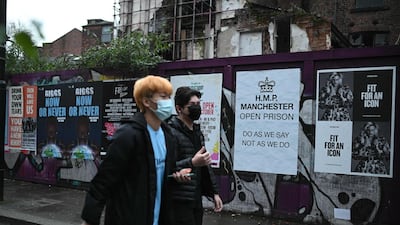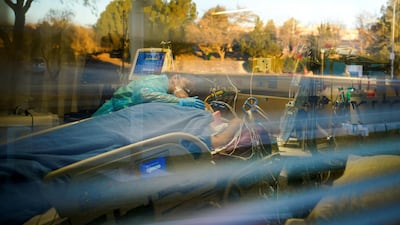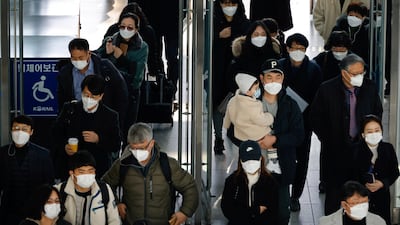The UK is ready to approve a vaccine against coronavirus in seven days as it gears up to launch its largest inoculation programme.
Britain could become the first country to approve the Covid-19 vaccine developed by Pfizer and BioNTech.
Approval could be granted as soon as December 7, with the programme introduced within hours of authorisation.
The US could follow days later with emergency approval granted between December 8 and December 10.
Not far behind, Moderna said on Monday it had filed for emergency approval of its vaccine in the US and Europe.
The company had already claimed the vaccine is up to 95 per cent effective but has now said its final batch of test results confirm the figure to be 94 per cent.
Russia, which is rushing to keep up with Western drug makers in the race for vaccine, said it began inoculating people with its Sputnik V shot in a hospital near Moscow last week.
Authorities in the UK are also planning a celebrity-backed campaign to persuade people to take the shot owing to fears of public scepticism.
Health officials hope to enlist trusted faces to head the campaign.
Manchester United footballer Marcus Rashford and members of the royal family are among those being considered.
Rashford is widely admired for his free school meals campaign, while the Duchess of Cambridge has increased her public activities with several initiatives.
UK Environment Secretary George Eustice said officials were looking to enlist familiar faces to combat "scaremongering and misinformation".
“It’s important we get the communications right," he told Sky News.
“There has been scaremongering and misinformation out there. We need to give people confidence.”
The UK ordered 40 million doses of the two-shot Pfizer/BioNTech vaccine, which trials found was 95 per cent effective.

The regulator is also carrying out safety checks on the Moderna and University of Oxford/AstraZeneca vaccines, but approval for those is expected to come after the Pfizer shot is approved.
European regulators are also moving at speed to approve the Pfizer inoculation.
German officials confirmed at the weekend that preparations had been made to introduce it next month once it is given the all-clear by the European Medicines Agency.
"As of today we are expecting it to be approved by mid-December," Jens Spahn, Germany's Health Minister, told Bavarian Radio.
The British government says frontline healthcare workers and nursing home residents will be the first to be vaccinated, followed by older people, starting with those over 80.
The plan is to work down the age and risk groups until everyone 18 and over has been inoculated.
Peter Openshaw, professor of experimental medicine at Imperial College London, told the BBC he would not be surprised if an announcement on the vaccine was made "within the next two weeks, possibly even as early as next week".
Non-medical staff, including volunteer first-aiders, are already being trained to give the shots, which will be administered at about 1,000 community vaccination centres and 40 to 50 large-scale centres, such as stadiums and conference venues, according to a government planning document.
UK Prime Minister Boris Johnson said officials hoped to vaccinate the vast majority of the people "who need the most protection by Easter".
Writing in the Daily Mail, Mr Johnson said the vaccine programme could be "just days away".
But he said there would not be a quick end to the onerous restrictions on business and everyday life that were imposed to curb the spread of the virus.
“There are still long weeks and months ahead before we can be completely confident that we can vaccinate enough people in the country, and thereby remove enough targets for the virus, in order to beat the disease,” he wrote.
Meanwhile, England's lockdown has cut coronavirus cases by 30 per cent, an Imperial College London study found.
Cases were rising as the country entered a four-week lockdown on November 5 and a sharp decrease followed the national restrictions, the study says.
England's lockdown is scheduled to end on Wednesday.
















